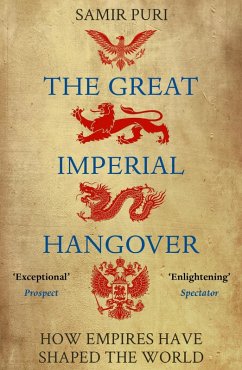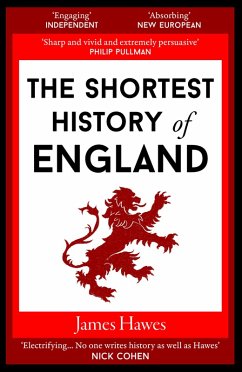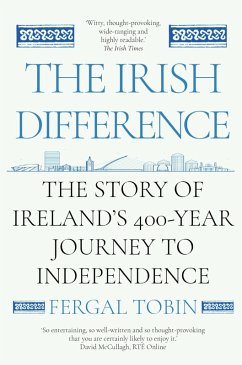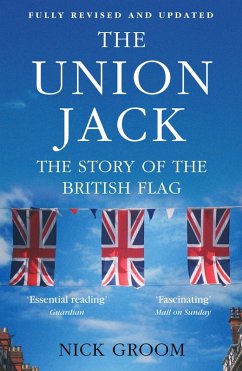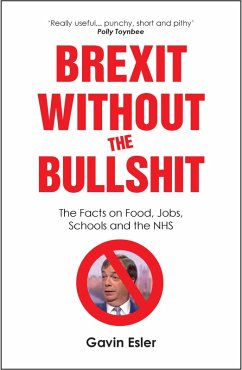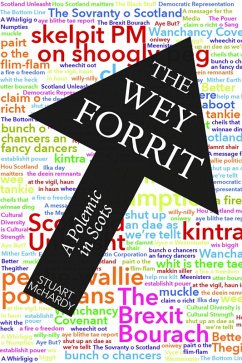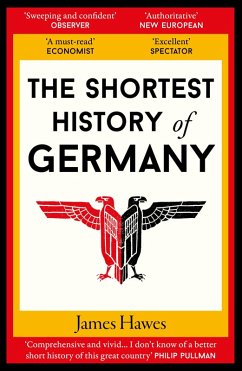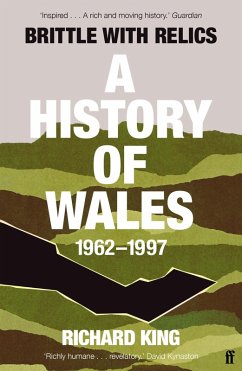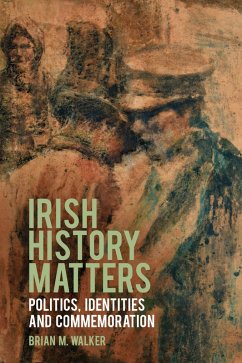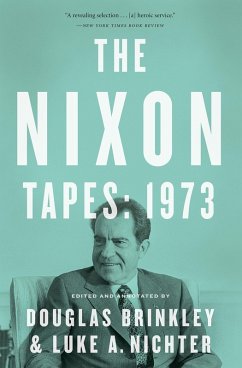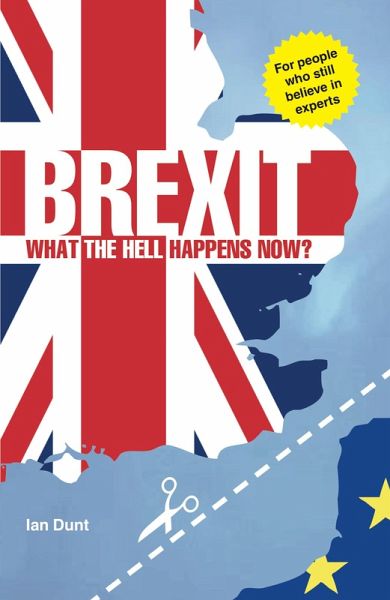
Brexit: What the Hell Happens Now? (eBook, ePUB)
Your Quick Guide

PAYBACK Punkte
0 °P sammeln!
''Admirably brief and necessarily brutal... Highly recommended.'' - NICK COHEN, THE SPECTATOR''Compact and easily digestible. I''d encourage anyone who is confused, fascinated or frustrated by Brexit to read this book - you''ll be far wiser by the end of it.'' - CAROLINE LUCAS MP''I would strongly recommend Ian Dunt''s excellent guide. Dunt has taken the extraordinary step of asking a set of experts what they think. I learnt a lot.'' - PHILIP COLLINS, PROSPECTBritain''s departure from the European Union is riddled with myth and misinformation - yet the risks are very real. Brexit could diminis...
''Admirably brief and necessarily brutal... Highly recommended.'' - NICK COHEN, THE SPECTATOR''Compact and easily digestible. I''d encourage anyone who is confused, fascinated or frustrated by Brexit to read this book - you''ll be far wiser by the end of it.'' - CAROLINE LUCAS MP''I would strongly recommend Ian Dunt''s excellent guide. Dunt has taken the extraordinary step of asking a set of experts what they think. I learnt a lot.'' - PHILIP COLLINS, PROSPECTBritain''s departure from the European Union is riddled with myth and misinformation - yet the risks are very real. Brexit could diminish the UK''s power, throw its legal system into turmoil, and lower the standard of living of 65m citizens.In this revised bestseller, Ian Dunt explains why leaving the world''s largest trading bloc will leave Britain poorer and key industries like finance and pharma struggling to operate. He argues that Brexit is unlikely to cause a big economic implosion, but will instead act like a slow puncture in the UK''s national prosperity and global influence.Based on extensive interviews with trade and legal experts, Brexit: What the Hell Happens Now? is a searching exploration of Brexit shorn of the wishful thinking of its supporters in the British media and Parliament.ABOUT THE AUTHORIan Dunt is a columnist for the I newspaper and appears as a pundit on BBC TV, Sky News and Al-Jazeera.With Dorian Lynskey, he presents the Origin Story podcast and is a regular contributor to the Oh God, What Now? podcast. His most recent book, How To Be A Liberal (Canbury, 2020), is an epic history of the spread of the ideas underpinning personal freedom. EXTRACTWhat is the European project?Britain has always been deeply ignorant of the motivation behind the European project. The most common British response to European politicians is indifference, followed by frustration, followed by mockery. But without understanding Europe, you can''t effectively negotiate with Europe.Ultimately, the European Union arose out of the ashes of the Second World War. In 1951, to prevent future disputes over resources, six nations agreed to trade freely in steel and coal. In 1957, the nations of the Coal and Steel Community (France, West Germany, Italy, Holland, Belgium and Luxembourg) signed the Treaty of Rome, founding the European Economic Community, which created a bigger common market and a customs union. Over time this common market attracted more nations and became the European Union.For years Britain stood outside this club. In 1951, Prime Minister Clement Attlee declined an invitation to join the Coal and Steel Community, dismissing it as ''six nations, four of whom we had to rescue from the other two.'' Britain also spurned the European Economic Community in 1958. While the European states looked to each other for peace and prosperity, the UK, with its still large empire and its special relationship with the United States, gazed overseas. Britain and the Continent were divided not just by geography, but by conflict. A great deal of the British psyche derives from the fact that we have not been invaded for centuries. We went through incredible suffering during the world wars, but it fell from the sky. It did not march down the streets in jackboots. On the mainland, that trauma was and is personal: the social memory of a neighbour''s betrayal, death camps, and tyranny. The EU is considered a barrier to conflict and carries an emotional weight we struggle to understand. Our MPs underestimate the resolve of Europe to preserve political unity.Extracted from Brexit: What the Hell Happens Now? by Ian Dunt (Canbury Press)
Dieser Download kann aus rechtlichen Gründen nur mit Rechnungsadresse in A, B, BG, CY, CZ, D, DK, EW, E, FIN, F, GR, HR, H, IRL, I, LT, L, LR, M, NL, PL, P, R, S, SLO, SK ausgeliefert werden.




